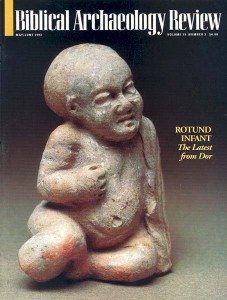International Symposium Charts the Future of Biblical Archaeology
If you’ve only recently heard of the New Archaeology (or “processual archaeology,” as it is sometimes called), you are too late. The field of Biblical archaeology has moved into a post-processual phase, or even, some say, post-post-processualism.
Don’t let the fancy terminology daunt you. New Archaeology, a movement that began among American archaeologists a generation ago, attempts to imitate the physical sciences, adopting more rigorous methodologies and emphasizing objective description and the importance of processes such as environmental degradation, rather than historical texts (which are regarded as biased) or speculations about behavior and motivation. “It is the kind of archaeology you do,” says one Biblical archaeologist half-seriously, “when you have no data,” meaning historical data. This explains why it began in North America, which lacks ancient texts. Until the 1970s, this kind of archaeology never made much headway in Biblical archaeology, which has an abundance of texts.
Already a library member? Log in here.
Institution user? Log in with your IP address.

